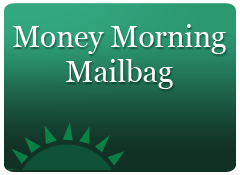U.S. mortgage rates dropped to a record low this week as the U.S. Federal Reserve started its second round of quantitative easing (QE2).
The 30-year fixed loan rate fell to 4.17% from 4.24%, Freddie Mac (OTC: FMCC) said yesterday (Thursday). The average 15-year rate fell to 3.57% from 3.63%.
Lower rates pushed up refinancing applications by 6%, according to the Mortgage Bankers Association's Weekly Mortgage Applications Survey for the week ending Nov. 5. The refinancing gauge has more than doubled since the beginning of 2010.
Still, homeowners looking to refinance aren't having the easiest time. A rocky economic recovery coupled with a high unemployment rate has made monthly payments a struggle for many. And when cash-strapped homeowners go to refinance, they are frequently shot down because of stricter borrowing requirements.
"Prior to the credit crunch, if you had a pulse you got a loan," Greg McBride, senior financial analyst at Bankrate.com, told NPR. But now, "[l]enders are still pretty skittish because of the high level of mortgage default[s] and borrowers have to bring more to the table than a smiling face."
The concern over mortgage refinancing options prompted this letter from a Money Morning reader:
If the Federal government is really interested in kick-starting the economy, then the banks should let all those of us who are current with our mortgages refinance at 3.0%. If we've all paid our mortgages all along at 5.0% – 6.0% (or more), we're certainly not going to stop paying when our mortgages a little, so there is almost no risk to the banks. It would also signal to those on the sidelines that rates aren't going any lower and, hopefully, encourage them to buy. Clearly, it would give us homeowners extra money to spend on "stuff."
This doesn't need to be complicated. The banks could be paid a reasonable processing fee - they're still going to get their principal. It shouldn't matter if our homes are underwater because we're paying our mortgages in spite of that now. It isn't about how much our homes are worth, it's about the monthly payment. The banks own our homes anyway. It would just be a way of lowering "the rent."
Just think how much money there would be to spend if hundreds of thousands of us could refinance our mortgages at 3.0%!
– Christy W.;
Northville, MI
New refinancing programs have been discussed in Congress recently, but none are likely to go into effect anytime soon.
U.S. Rep. Dennis Cardoza, D-CA, introduced the latest proposal to Congress in October. The plan came from a pair of Columbia University economists, R. Glenn Hubbard and Christopher Mayer. The Hubbard-Mayer Proposal would have Fannie Mae (OTC: FNMA), Freddie Mac and the Federal Housing Administration guarantee refinanced loans for those holding government-backed loans.
"This is a market-based solution," said Cardoza. "The federal government is already on the hook for everyone who defaults on these mortgages – 37 million American mortgages."
The theory is that since the majority of mortgages – about 60% – involve government-backed loans, it's in taxpayers' best interest to give homeowners cheaper monthly payments and reduce foreclosure risk while putting more money in consumers' pockets. The estimated savings for homeowners would be $2,000 a year on average, totaling $50 billion in annual savings for all homeowners.
Meanwhile, lenders would receive a fixed, reduced fee for each mortgage they refinance.
The plan would mean fewer foreclosures, which would help the housing market recovery gain traction. U.S. taxpayers will take losses if those struggling to make payments aren't allowed to refinance at lower rates and home loans go bad.
"The big benefit of this program is that it does not cost taxpayers money," said Mayer.
But those arguing against the Hubbard-Mayer Proposal fear it would be impossible for the plan to not cost taxpayers something, or that banks and investors would lose by not receiving as many high-interest payments.
They also are wary of more government intervention to prop up the ailing housing market.
"The government should back away because everything they've tried, with good intent, has not worked," Anthony Sanders, the director of the Center for Real Estate Entrepreneurship at the George Mason University School of Management, told NPR. "Why are we absolutely dead-set on keeping housing prices artificially high?"
With loud critics and a Congressional lame duck session facing a lot on its plate, any plan to push a refinancing program through Washington is not likely to see light any time soon.
(**) Money Morning editors reserve the right to edit responses for grammar, length and clarity when posting on our Web site. Please include your name and hometown with your email.
News and Related Story Links:
- Bloomberg:
Mortgage Rate for 30-Year U.S. Loans Falls to Record
- Money Morning News Archive:
Quantitative Easing Stories
- NPR:
Home Loan Blues: Refinancing Isn't So Easy - NPR:
Congress Weighs Big Homeowner Refinancing Plan - Money Morning:
With Kickbacks on Force Placed Insurance, the U.S. Mortgagegate Scandal Just Gets Deeper
- Money Morning Archives:
Money Morning Mailbag Feature



